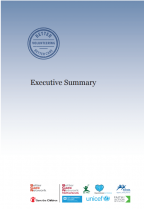The Impact of Trauma Work: A meta-synthesis on vicarious trauma and vicarious trauma growth
Workers who have been traumatized of both vicarious trauma (VT) and various posttraumatic growth (VPTG) have a high potential of short-long term of distress using a meta-synthesis. Psychological impact can be managed through personal and organizational coping strategies. It was also found that trauma work leads to changes in schemas and day-to-day routines and that these changes can be both negative and positive.

